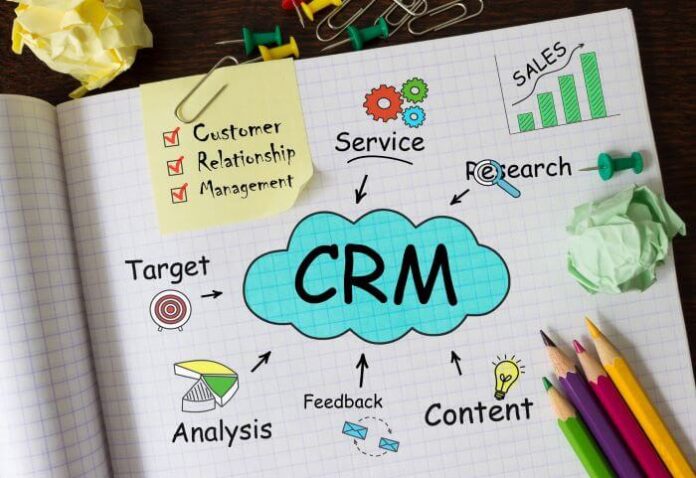In the current digital landscape, businesses navigate a vast ocean of data. Every interaction, every click, and every transaction leaves behind a trail. Deciphering this myriad to yield actionable insights becomes a challenge, emphasizing the need for robust tools and strategies.
One such indispensable tool that stands out is customer relationship management or CRM. With the surge of digital touchpoints and an increasingly competitive market, businesses worldwide are turning to CRM to optimize their operations. What is customer relationship management? It’s a system designed to manage and analyze customer interactions, converting them into business strategies.
Understanding The CRM Landscape
The transformation of CRMs from mere customer databases to today’s multifaceted platforms signifies the relentless evolution of the digital age. Originally built as data repositories, modern CRMs have adapted to the ever-changing needs of businesses. These tools now branch into operational, analytical, and collaborative functions, each catering to distinct business needs.
- Operational: These systems, fundamental to daily operations, manage a myriad of tasks – from sales funnels and marketing campaigns to service requests. They aim to simplify and automate routine processes, ensuring efficiency and guaranteeing that customers have smooth experiences at every interaction.
- Analytical: While operational platforms handle day-to-day tasks, analytical counterparts act as the business world’s data detectives. They sift through a treasure trove of customer data, examining interactions, purchases, and feedback. This deep dive uncovers hidden patterns and user behaviors, equipping businesses with the insights needed to fine-tune their offerings and strategies to meet customer expectations.
- Collaborative: In our interconnected business environment, fostering collaboration is paramount. Recognizing this, collaborative platforms bolster communication channels, ensuring seamless information flow. Whether it involves internal teams working on a project or businesses liaising with external partners, these systems keep everyone on the same page and in sync.
In essence, the evolution of CRMs isn’t just about technology – it mirrors the growth and transformation of businesses themselves. Their increasing sophistication underscores their central role in enhancing both operational efficiency and the depth of customer relationships. As we probe further, we’ll explore how CRMs play a pivotal role in the crucial business process of lead generation.
The Role Of CRM In Lead Generation
With every interaction holding potential, CRMs are crucial in seizing opportunities. These systems map out the entire customer journey, highlighting vital touchpoints.
- Tracking & Management: CRMs allow businesses to monitor all customer interactions closely. Every step, from the first click to the final purchase, is logged, offering invaluable data on preferences and behaviors.
- Automated Marketing: Manual marketing campaigns are becoming outdated. With CRM systems, businesses can set up automated campaigns, sending personalized emails, reminders, and more, ensuring consistent engagement.
- Predictive Analysis & Lead Scoring: Guesswork is now a thing of the past. CRMs, with their analytical prowess, assess historical data, giving every lead a score based on their likelihood to convert.
- Integration: The platform excels in connectivity. Integrating with other digital tools, businesses can get a holistic view of their customers, drawing data from multiple touchpoints.
CRMs have revolutionized the way businesses approach lead generation. Now, let’s look into the best practices to ensure optimal use of these systems.
Best Practices In CRM For Lead Generation
In lead generation’s dynamic realm, the strategic deployment of a CRM system becomes a game-changer. It’s not just about having a tool, but about mastering its applications to maximize results.
- Segmentation And Profiling: Understanding that every lead is unique is vital. Businesses can craft tailored strategies by segmenting them based on various metrics, ensuring higher engagement.
- Personalized Communication: Personalized content stands out in a sea of generic messages. Businesses can use data to send out content that resonates, striking a chord with the recipient.
- Tracking And Analytics: The importance of data in today’s age can’t be overstated. With continuous tracking, businesses can refine strategies, ensuring they’re always on the right path.
- Embracing Artificial Intelligence (AI) and Machine Learning: The future is digital. By integrating AI features, businesses can access advanced analytics, intelligent chatbots, and more, supercharging their operations.
To make the most of a CRM, it’s imperative to understand its features and leverage them effectively. However, like all tools, they come with challenges, which we’ll address next.
Challenges And How To Overcome Them
Every tool, even the sophisticated ones, is without challenges. Yet, understanding these hurdles and planning proactively can transform them into opportunities for enhanced CRM functionality.
- Data Privacy Concerns: With rising awareness about data privacy, businesses must ensure transparency and compliance, safeguarding customer information.
- Data Silos: Decision-making can be hampered by fragmented data. Ensuring the system integrates data across departments is essential, offering a unified view.
- Updated Information: A CRM’s efficiency lies in its data. Regular updates are paramount to keep the system relevant.
- User Training: User proficiency determines technology’s efficiency. Investing in training ensures that teams harness the system’s full potential.
While challenges are part and parcel of any technological tool, they can be navigated effectively with the right approach. Now, onto choosing the right CRM for your unique business needs.
Choosing The Right CRM For Your Business
Your chosen system forms the bedrock for your customer interaction strategies. Making an informed decision requires a mix of introspection about your business needs and an understanding of what the CRM landscape offers.
- Assess Needs: Since every business is unique, ensure the chosen CRM aligns with your requirements.
- Scalability: As businesses grow, their needs evolve. The right system should be able to scale, accommodating future needs.
- Integration Capabilities: A standalone CRM isn’t optimal. It should be able to integrate with your existing toolset seamlessly.
- Cost-Benefit Analysis: It’s essential to weigh the CRM’s benefits against its costs.
Choosing the right CRM requires understanding both current and future business needs. As we move forward, let’s glimpse into the future of CRM and lead generation.
Peering Into The Future: CRM And Lead Generation
The CRM landscape continually evolves. With advancements in technology and changing market dynamics, the future holds promise.
- Rise of AI: Automation and AI-driven solutions will become more commonplace, offering businesses even more refined tools.
- Evolving Customer Expectations: As customers become more tech-savvy, their expectations shift. CRMs of the future will need to cater to this evolved clientele.
- Big Data & Analytics: Big data will shape the future of CRMs, ensuring businesses have all the insights they need to thrive.
With constant technological innovations and shifts in consumer behavior, the future of CRM promises exciting prospects. In conclusion, let’s understand their essence in modern business growth.
Conclusion: The Essence of Modern Business Growth
Businesses today need agility, data-driven strategies, and customer focus to succeed. CRM emerges as the linchpin for modern businesses, streamlining operations, enhancing lead generation, and ensuring meaningful customer engagements. By understanding CRM’s evolution, leveraging its features, and addressing challenges, businesses can ensure they’re not just keeping pace but setting the benchmark in their respective industries. Harnessing its power is no longer a choice but a crucial element for sustained growth and success.








